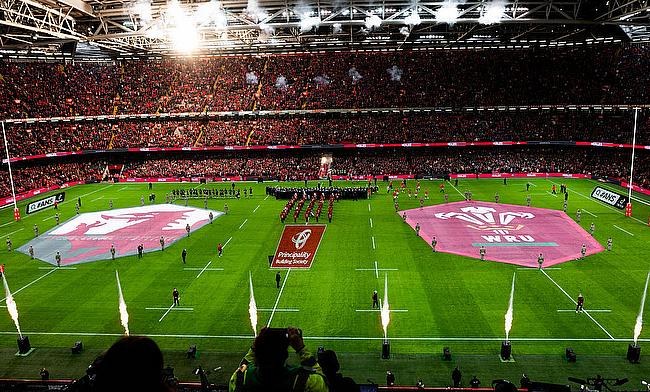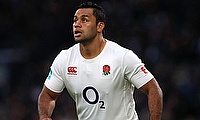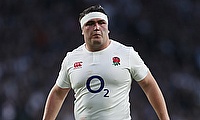Striking the ‘very last option’ for Wales players according to talisman Alun Wyn Jones

Alun Wyn Jones says that striking for Wales's Six Nations game with England is the 'very last option'
©Sian Owens
On Thursday afternoon, former Wales captain Alun Wyn Jones would not rule out the possibility of a players strike for next Saturday’s Guinness Six Nations clash with England.
It has been a tumultuous week in Welsh rugby, as negotiations between the Welsh Rugby Union [WRU] and the Professional Rugby Board [PRB] – who represent the country’s four provinces who compete in the United Rugby Championship – to secure budgets for the coming years continue to stall.
It has meant that the regions are unable to offer players new deals, while an exodus of players overseas is also on the horizon with the slashing of funding expected.
The majority of Warren Gatland’s Six Nations squad play for Cardiff Rugby, Dragons RFC, Scarlets and the Ospreys, with the Daily Mail reporting that a current member of the Wales Six Nations squad is taking antidepressants as a result of the anxiety that has been created.
Last night, it was reported in The Times that Wales players staged a walk-out at a sponsor’s event in order to make a statement to the WRU, who had earlier doubled down on their intention to reduce funding.
Players have also refused to co-operate with the Netflix cameras in camp who are producing a documentary on the 2023 Six Nations, the players looking to take control of the situation and drive towards a positive outcome.
A proposed payment structure has caused immense upset to players, who will have only 80 per cent of their salaries guaranteed, these new fixed variable contracts meaning that players would have to earn bonuses to get a full salary.
Those goals to full up the pay packet are believed to be “unrealistic”, although the six-year agreement is believed to be verbally agreed according to the governing body, although it is not signed.
Top earners in Wales would now earn £268,000 a year, instead of the £400,000 they currently enjoy, with regions also facing fines for losing international players, or those of national interest, to clubs outside of the country.
"I suppose it is,” Alun Wyn Jones said when asked if striking was an option. “It's hard to deny, but it's the very last option.
"There are people who are really impassioned. Ultimately, if you treat people badly for long enough, you get to where we find ourselves.
"We realise what we do and how fortunate we are to do it, but if this was any other line of work or any other industry for this period of time with this amount of uncertainty, you'd get the same reaction.
"We're very respectful to society as a whole. But it comes to a point now where the game in Wales has to make a decision on which way it wants to go."
On Thursday morning, the Welsh Rugby Players Association released a statement expressing their disappointment at their portrayal by the PRB and how they had not been involved with the negotiations at any stage of the process.
Describing players in Wales’ treatment as similar to being in a game of ‘Championship Manager’, it is clear that there is a wide distrust between professional players in Wales and their governing union.
"We just want to have an ear in the room to know what's going on," Jones said.
"We want a voice as well and a discussion about scrapping the 60-cap rule, that's come out so I'm comfortable in saying that, and the fixed variable part of the contract.
"We are well aware there are rebalances that need to be made financially but again it comes down to players being boxed in with their options in terms of the 60-cap rule and the contractual obligations.
"It's ultimately in motion now because dialogue has been had and as players, we've voiced our concerns.
"We've probably done that in more of a messy way than we would have liked to because of certain things in the last 24 or 48 hours, but ultimately it's now down to the regions and the union to work on an option.
"Speaking on behalf of the playing group of Wales, we just want to play rugby. Everyone wants to play the game. It's about protecting the game to ensure it goes well for generations to come. We have to sort this out now.
“We can't go back into this cycle of uncertainty because it's not helping."
Jones sat alongside his Wales head coach while making all these statements, Warren Gatland newly back into the fray with Wales after taking over from Wayne Pivac at the end of last year.
To describe the New Zealander’s return to Cardiff as easy would be doing things an injustice, the 59-year-old taking charge of the side as sexism, misogyny and racism claims hit the union, before the potential of his players striking hit the back pages.
A tough start to the Six Nations has not helped, with Wales rooted to the bottom of the table after heavy losses to Ireland and Scotland. With the potential of his players striking and missing their clash with England, Gatland says he would not support his squad if they chose not to play in two weekends time.
"No,” Gatland said. “I completely support the stance they are taking in terms of wanting to get some resolution about the issues they have.
"But I think there are a lot of things at stake in terms of ensuring that that fixture does take place. I am supportive of the players and the things they are trying to do.
"The players have been great in the last few days. They have got a separate issue they want sorted but when it's come to the rugby, they have been fantastic the way they have prepared in the last few days.
"There have been ongoing discussions with the union and the PRB to hopefully get things sorted out.
"You can't blame players for being on contracts and money. If someone comes and offers you 30 or 40 grand more than you are now, if your salary goes up to 300 from the 260 you are on now, then how can you blame the players for accepting contracts?
"So, it's a little disingenuous to say the players are being paid too much. I don't see how it's a fault of theirs. The bottom line is that we have been overspending in Wales for a number of years and some of the regions are in financial difficulty. That's the situation.”









